十则英语寓言故事(中英文对照)
英语教师通用评课稿及常用语(含小初评课案例16篇)
新课标中24个话题的英语词汇思维导图
背诵+默写:学英语的黄金搭档
新学期抓早读!高效英语早读优化方案来了!(附评价标准)
爱心提示
由于微信公号改版不再按时间流推送,互动少的读者会逐渐接收不到(及时)推送。
为防失联,及时看到新内容,推荐大家或可多点在看和留言,或是设个星标。
感恩大家一直以来的支持,期待更多好内容能与大家准时相遇。
一
Making His Mark
刻舟求剑

A man from the state of Chu was taking a boat across a river when he dropped his sword into the water carelessly. Immediately he made a mark on the side of the boat where the sword dropped, hoping to find it later. When the boat stopped moving, he went into the water to search for his sword at the place where he had marked the boat. As we know, the boat had moved but the sword had not. Isn’t this a very foolish way to look for a sword?
楚国有个人坐船渡江时,他不小心把自己的一把宝剑掉落江中。他马上掏出一把小刀,在宝剑落水的船舷上刻上一个记号。船靠岸后,那楚人立即从船上刻记号的地方跳下水去捞取掉落的宝剑。他怎么找得到宝剑呢?船继续行驶,而宝剑却不会再移动。像他这样去找剑,真是太愚蠢可笑了。
二
To Pull up the Seedlings
to Help Them Grow
拔苗助长
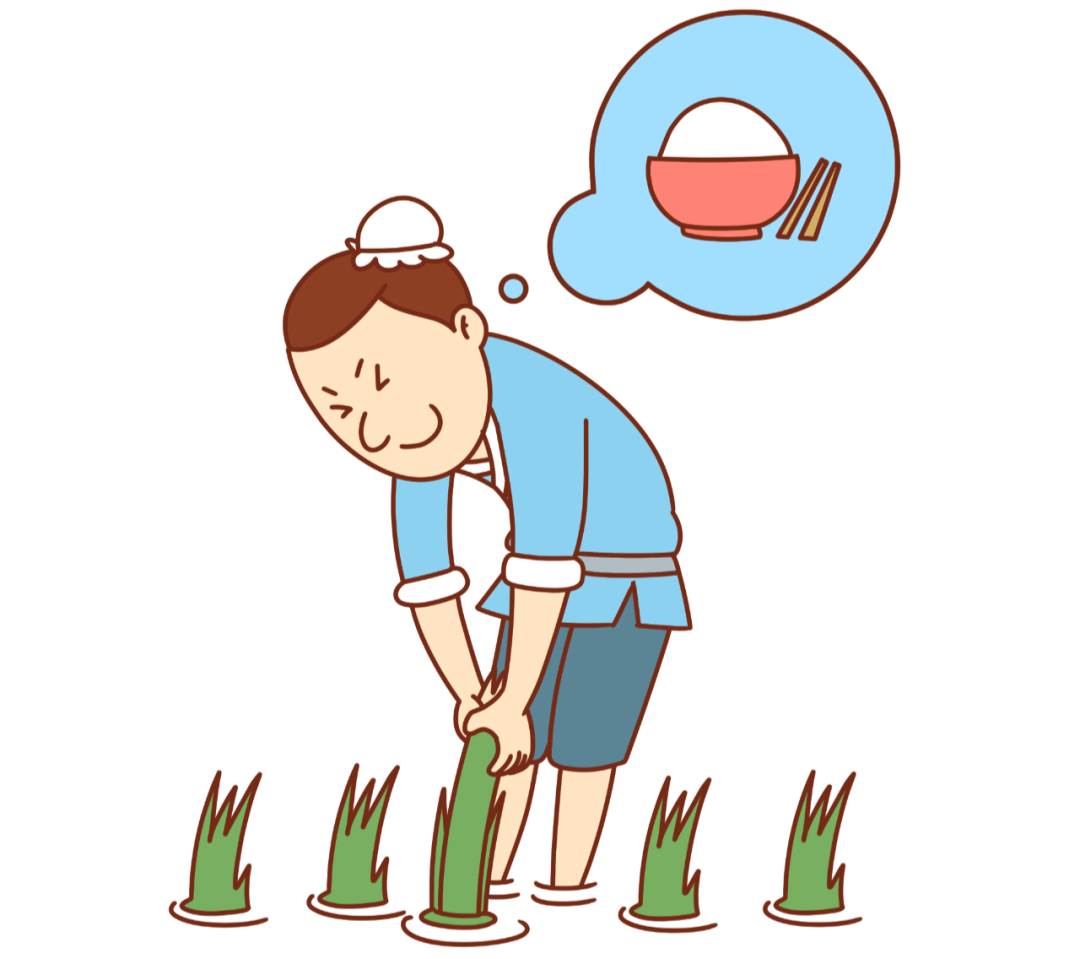
Once upon a time, there was an old farmer who planted a plot of rice. After he planted the seedlings, every day he went to the field to watch the seedlings grow. He saw the young shoots break through the soil and grow taller each day, but still, he thought they were growing too slowly. Eventually he got impatient with the young plants and suddenly he hit upon an idea that one by one, he pulled up the young plants by half an inch. The next early morning, the young man couldn’t wait to check his “achievement”, but he was heart-broken to see all the pulled-up young plants dying.
从前,有个农夫,种了稻苗(seedlings)后,便希望能早早收成。每天他到稻田时,都发觉那些稻苗长得非常慢。他等得很不耐烦。想了又想,他终于想到一个“最佳方法”,他将稻苗全都拔高了几分。第二天,一早起身,他迫不及待地去稻田看他的“成果”。哪知,却看到所有的稻苗都枯萎了。
三
Plugging One’s Ears While Stealing a Bell
掩耳盗铃
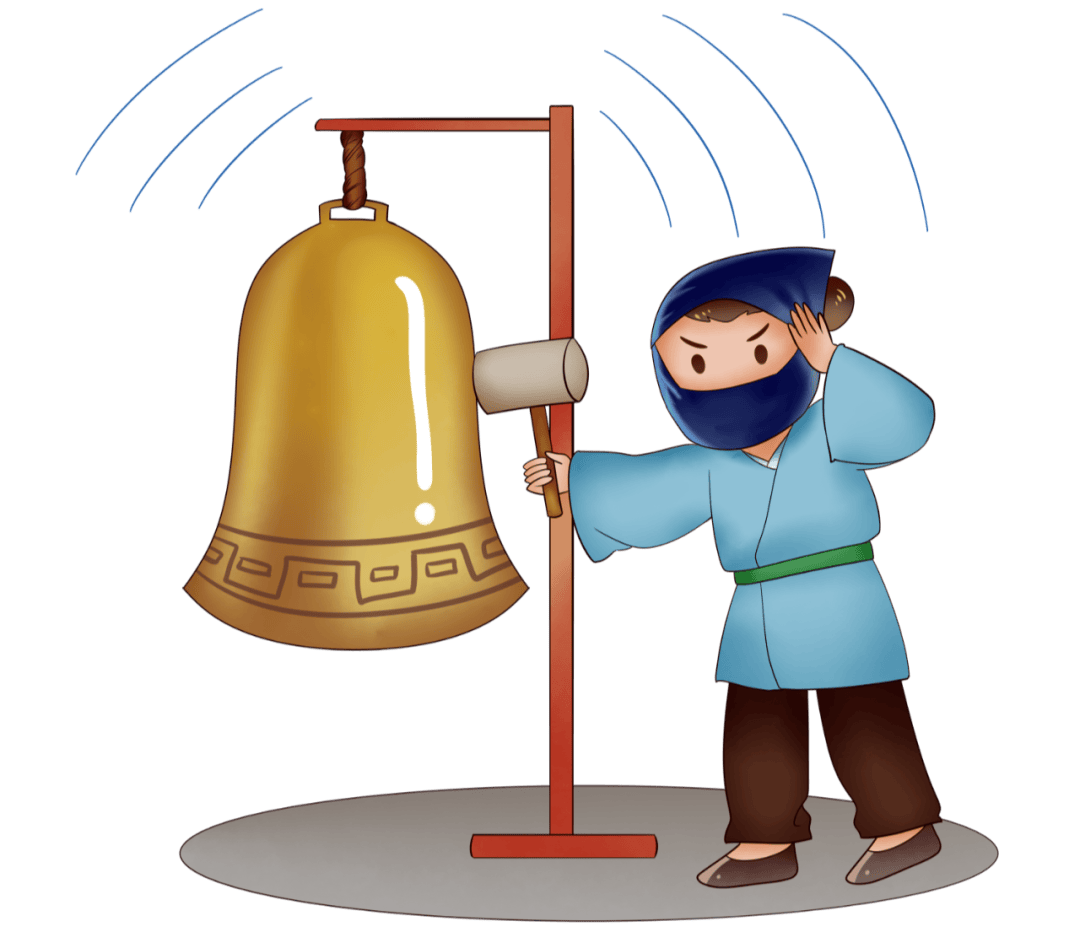
Once upon a time, there was a man who wanted to steal his neighbor’s doorbell. However, he knew clearly that the bell would ring and catch the other people’s attention as long as he touched the bell. So he thought hard and suddenly hit on a clever “idea”. He plugged his ears with something, thinking that everything would go well when he stole the bell. Unfortunately to his disappointment, the bell still rang loudly and he was caught on the spot as a thief.
从前,有一个人想偷邻居门上的铃,但是他知道一碰到铃,铃就会响起来,被人发现。他想啊想,终于他想出一个“妙极”,他把自己的耳朵用东西塞起来,就听不见铃声了。但是当他去偷铃时,铃声仍旧响起来,他被别人当场抓住。
四
The Fox and the Crow
狐狸和乌鸦
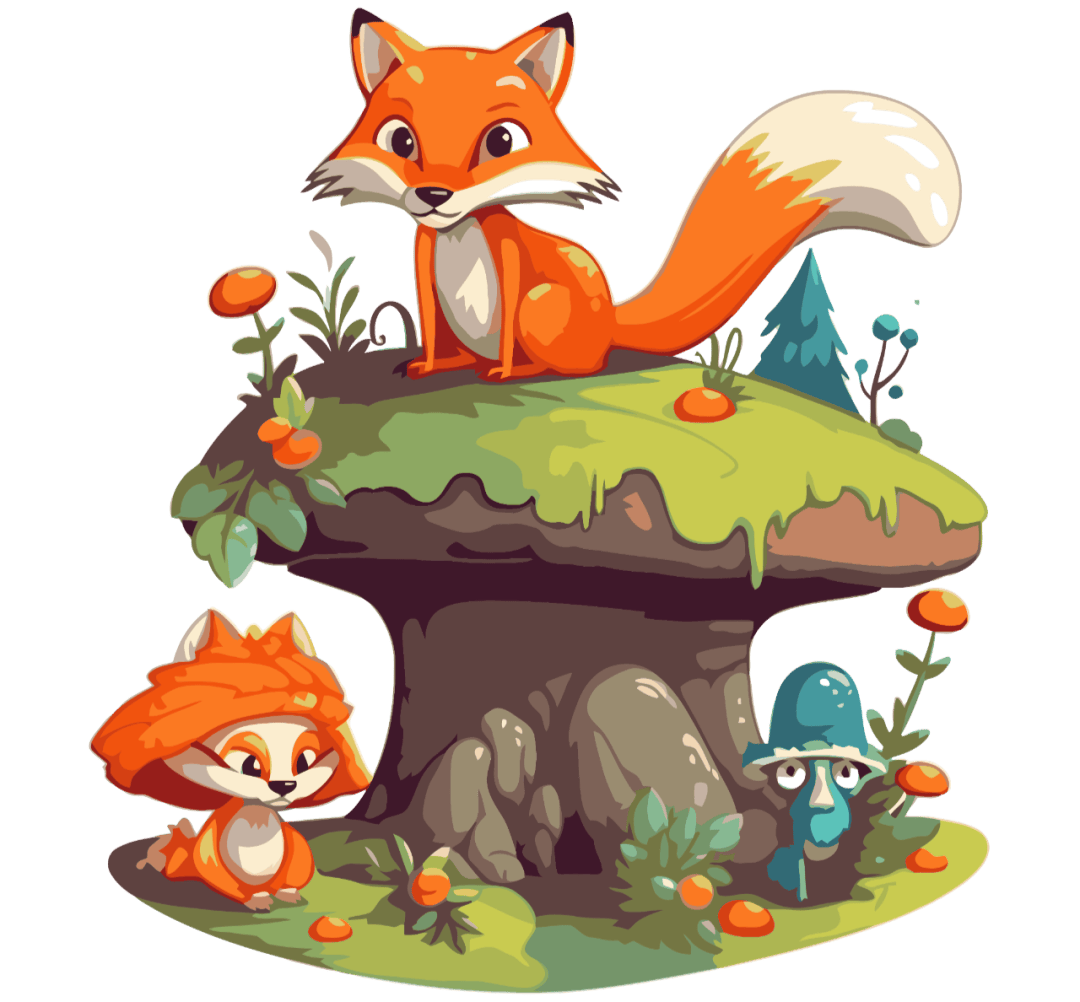
One day a crow stood on a branch near his nest and felt very happy with the meat in his mouth. At that time, a fox saw the crow with the meat, so he swallowed and eagerly thought of a plan to get the meat. However, whatever the fox said to the crow, the crow just kept silent. Until the fox thought highly of the crow’s beautiful voice, the crow felt flattered and opened his mouth to sing. As soon as the meat fell down to the ground, the fox took the meat and went into his hole.
有一天,一只乌鸦站在窝旁的树枝上嘴里叼着一片肉,心里非常高兴。这时候,一只狐狸看见了乌鸦,馋得直流口水,非常想得到那片肉。但是,无论狐狸说什么,乌鸦就是不理睬狐狸。最后,狐狸赞美乌鸦的嗓音最优美,并要求乌鸦唱几句让他欣赏欣赏。乌鸦听了狐狸赞美的话,得意极了,就唱起歌来。没想到,肉一掉下来,狐狸就叼起肉,钻回了洞。
五
Draw a Snake and Add Feet to It
画蛇添足

Long long ago, several people had a jar of wine among them and all of them wanted to drink it by himself. So they set a rule that every one would draw a snake on the ground and the man who finished first would have the wine. One man finished his snake very soon and he was about to drink the wine when he saw the others were still busy drawing, so he decided to draw the feet to the snake. However, before he could finish the feet, another man finished and grabbed the jar from him, saying, "Who has ever seen a snake with feet?” The story of "Draw a snake and add feet to It.” tells us going too far is as bad as not going far enough.
古时几个人分一壶酒。他们都想独自喝完那壶酒,所以就定了一个规矩:每人在地上画一条蛇,谁画得最快,这壶酒就归谁。有一个人很快就把蛇画好了。他正打算喝这壶酒时,看见别人都还在忙着画,就决定给蛇再画上几只脚。结果,他的蛇脚还没加完,另一个人已经把蛇画好了。那人一下把酒壶夺了过去,说:“有谁见过长脚的蛇?”。这个故事告诉我们这样的道理:做得过分和做得不够都是不对的。
六
郭氏之墟
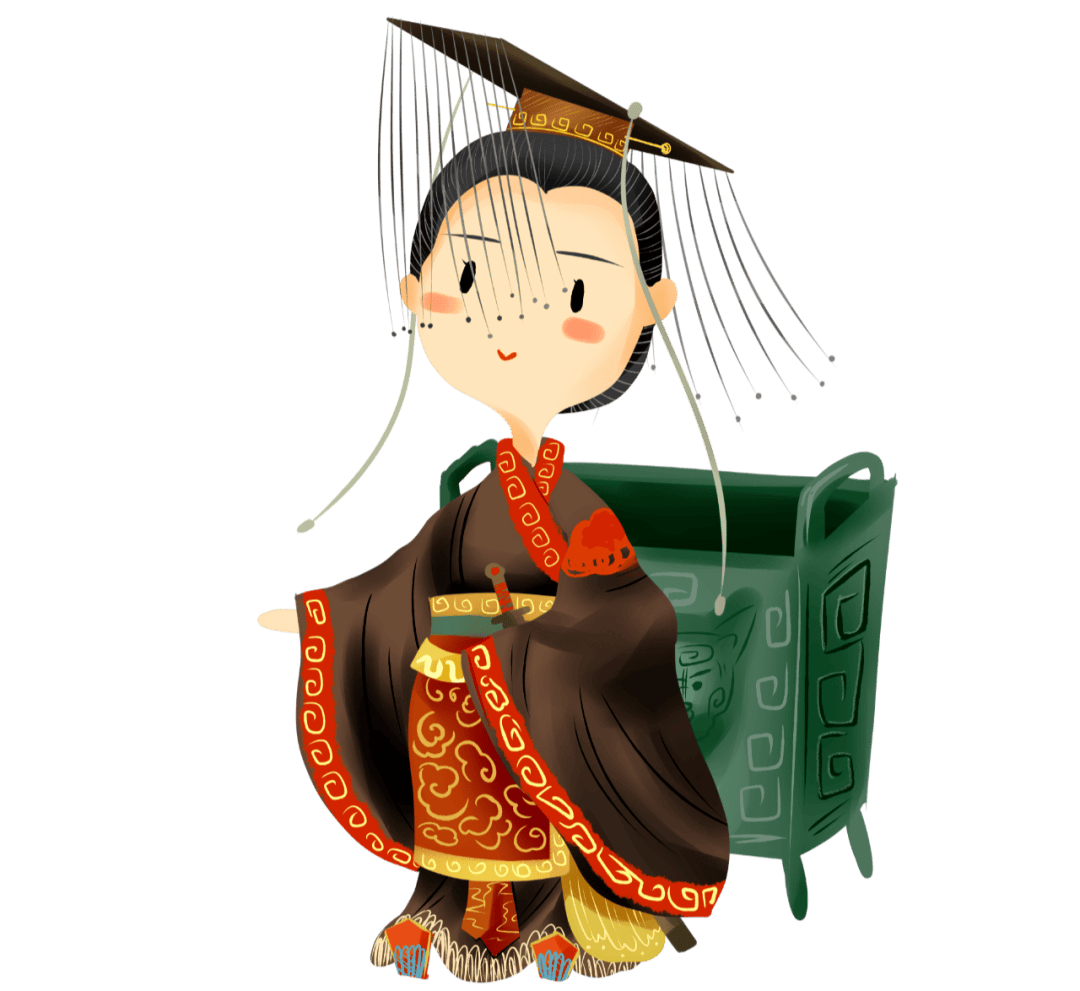
On a vacation trip, Duke Huan of the state of Qi came to the ruin of the capital of Guo Shi, which perished long ago.
Seeing the desolate and bleak prospects of broken tiles, collapsed walls, and clusters of weeds, he could not help asking the local people about the reason of the ruin of Guo Shi.
They replied, “Guo Shi was fond of doing good deeds, and averse to evildoing, which led to the perdition.”
When the Duke could not understand the answer, people explained, “Though he liked doing good, he had never been able to do so; though he hated evildoing, never could he help not participating. That caused the ruin of his capital.”
齐桓公出游途中,来到已经灭亡许久的郭氏都城的废墟。
看到瓦砾残垣、杂草丛生的萧条景象,忍不住问当地百姓郭氏灭亡的原因。
百姓们回答说:"郭氏由于喜爱善行善事。厌恶邪恶丑行而导致灭亡。"
齐桓公不能理解这种回答,百姓们便解释说:"郭氏虽然喜爱善行善事,但从来都不能做到;尽管厌恶邪恶丑行,却总是忍不住参与其中。这就是他的都城变成废墟的原因。"
七
老鼠和公牛
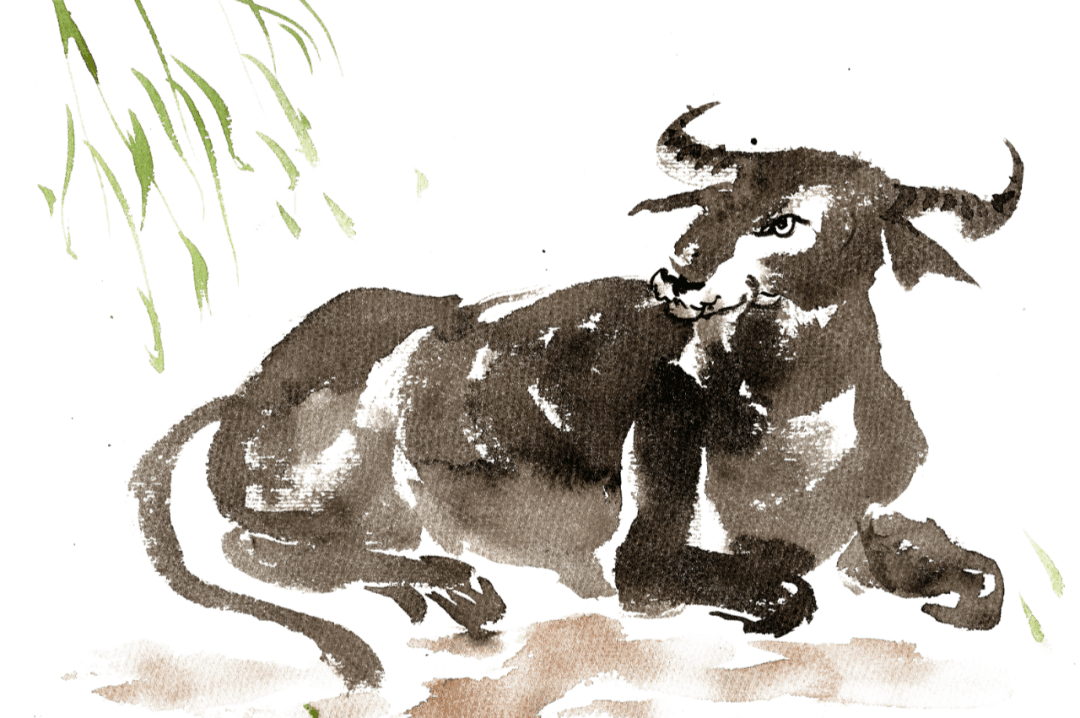
A mouse once took a bite out of a bull’s tail as he lay dozing. The bull jumped up in a rage and, with his head low to the ground, chased the mouse right across the yard. The mouse was too quick for him, however, and slipped easily into a hole in the wall.
The bull charged the wall furiously again and again, but although he bruised his head and chipped his horns, the mouse stayed safely inside his hole. After a time the bull gave up and sank down to rest again.
As soon as the bull was asleep, the little mouse crept to the mouth of the hole, pattered across the yard, bit the bull again -- this time on the nose -- and rushed back to safety. As the bull roared helplessly the mouse squeaked: “It’s not always the big people who come off best. Sometimes the small ones win, you know.”
有一次,公牛躺着打盹,一只老鼠咬了他的尾巴。公牛怒气冲冲地跳起来,低着头追老鼠,一直追过院子。然而,老鼠跑得比他快多了,从容地钻到墙洞里去了。
公牛一次又一次地猛撞墙壁,尽管头撞肿了,角撞裂了,老鼠却安然待在洞里。过了一会儿,公牛不撞了,倒下歇着。
公牛刚睡着,小老鼠就爬到洞口,嗒嗒地跑过院子,又咬了公牛一口,这回咬了鼻子,又跑回安全的地方去。当公牛毫无办法地吼叫时,老鼠吱吱叫道:
“大人物并不总占上风。有时小人物也会取胜。”
八
男孩和荨麻

A boy was in the fields when he was stung by a nettle . He ran home to tell his mother what had happened. “I only touched it lightly,” he said, “and the nasty thing stung me.”
It stung you because you only touched it lightly, his mother told him. “Next time you touch a nettle grasp it as tightly as you can. Then it won't sting you at all.”
Face danger boldly.
有个男孩子在地里玩耍,被荨麻刺痛了。他跑回家去,告诉妈妈出了什么事。
“我不过轻轻地碰了它一下,”他说,“那讨厌的东西就把我刺痛了。” “你只轻轻地碰了它一下,所以它才刺痛你,”妈妈对他说,“下一回你再碰到荨麻,就尽量紧紧地抓住它。那它就根本不会刺痛你了。”要敢于面对危险。
九
鹦鹉和猫

A man once bought a brilliantly-coloured parrot. Instead of locking it up in a cage or chaining it to a perch, he allowed it to fly free all over the house. The parrot was delighted at this and flapped from room to room, shrieking and screaming with happiness. At last he settled on the edge of a rich curtain.
"Who on earth are you ?" said a cross voice from below. "Stop that terrible noise at once."
The parrot saw a cat staring up at him from the carpet.
"I’m a parrot. I’ve just arrived and I 'm to make as much noise as I can," he said.
"Well, I’ve lived here all my life," replied the cat."
I was born in this very house and I learned from my mother that it is best to keep quiet here."
"Keep quiet then, "said the parrot cheerfully. "I don't know what you do around here, but I know my job. My master bought me for my voice and I'm going to make sure he hears it."
Different people are valued for different things.
从前,有人买了一只毛色鲜艳的鹦鹉。他没有把鹦鹉关在笼子里,也没有用链条把他拴在栖木上,而让他在家里自由自在地飞来飞去。鹦鹉对此非常高兴,扑动翅膀,从一间屋子飞到另一间屋子,愉快地尖声叫着,最后停在华丽的帷幔的边上。
你到底是谁?从下面传来怒气冲冲的说话声,马上住嘴,别发出那难听的声音。
鹦鹉看见地毯上有一只猫抬头看着他。我是鹦鹉。我刚到,我要使劲地吵吵。他说,那你就一声不响吧,鹦鹉欢快地说,我不知道你在这儿干什么,可我知道我的活儿。主人为了我的声音才买我,我一定得让他听到。
不同的人因有不同的特点而受重视。
十
一捆树枝
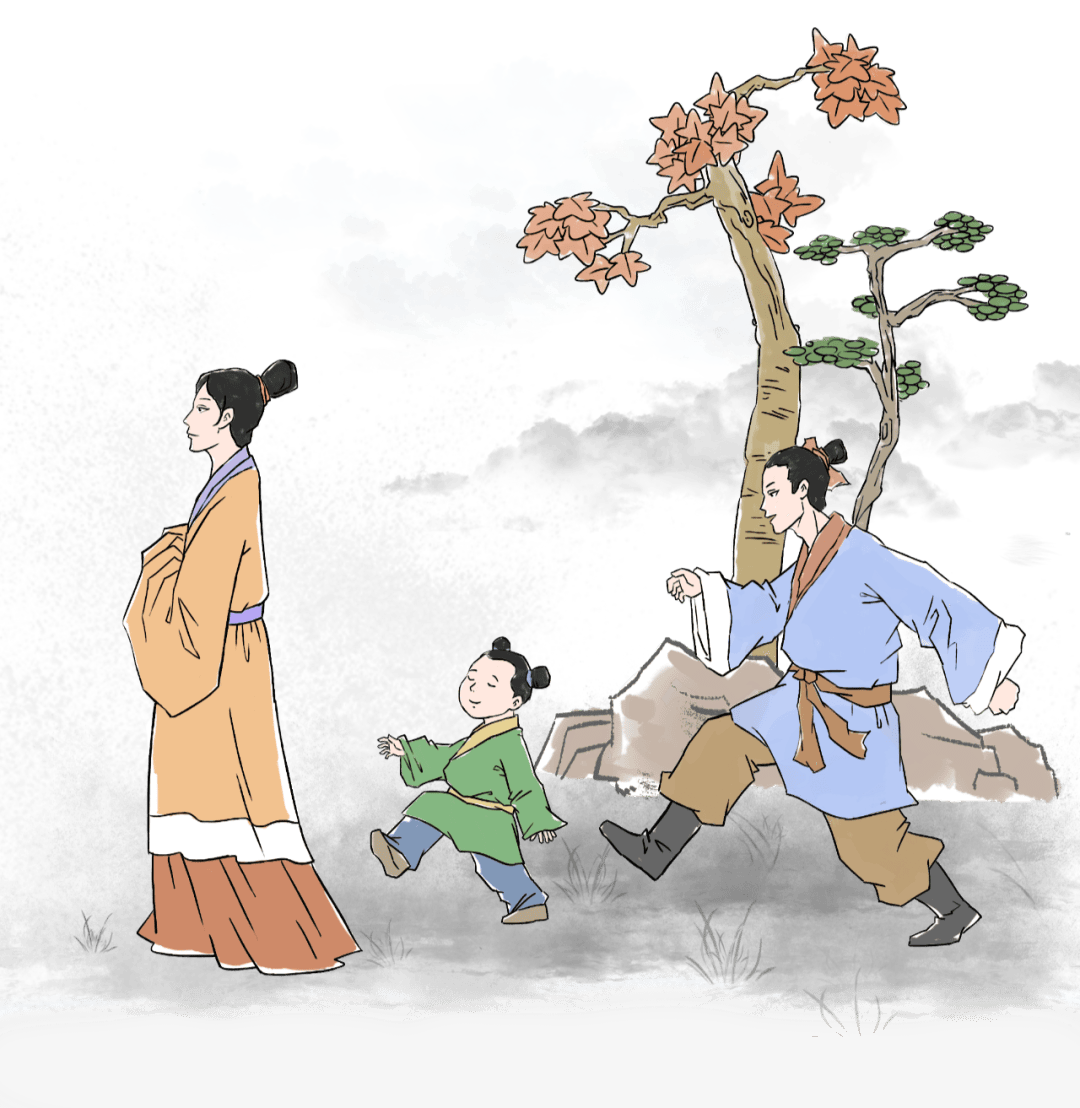
A man once had four sons who never stopped quarreling with one another.
He was always telling them how much easier life would be if they worked together but they took absolutely no notice of him. One day he decided to show them what he meant.
He called all the sons together and put a tightly tied bundle of sticks on the floor in front of them.
"Can you break that?" he asked the youngest son. The boy put his knee on the bundle but though he pressed and pulled with his arms he could not bend the wood. The father asked each son in turn to try to break the bundle, but none of them could do it .
Then he untied the string and scattered the sticks.
"Now try," he said. The boys broke the sticks easily in their hands.
"Do you see what I mean?" asked the father. "if only you stand together no one can hurt you. If you all disagree the whole time and insist on going your separate ways, the first enemy you meet will be able to destroy you."
United we stand; divided we fall.
从前有一个人,他有四个儿子。儿子们不断地争吵。他一再告诫他们说,如果他们一起干活儿,生活会舒适得多,但他们丝毫不理会他的意见。有一天,他决定通过示范把自己的意思告诉他们。
他把四个儿子都叫来,又把一捆扎得很紧的细树枝放在他们面前的地上。
你能折断这个吗?他问最小的儿子。小伙子用膝盖顶住,两只手又压又拉,都不能把那捆树枝弄弯。父亲让别的儿子挨个儿试试,看他们是否能把那捆树枝折断,但谁也做不到。然后,他解开绳子,把树枝撒开。试试吧。他说。四个小伙子用手轻轻一撅,树枝就断了。
你们明白我的意思了吗?父亲问,只要你们联合起来,谁也不能伤害你们。如果你们老吵架,一定要各行其是,那么你们一遇到敌人,就会被打败。
合则存,分则败。
来源 | 网络
明师俱乐部进行综合整理,如涉及版权问题,请及时与我们联系。
《中国风·虎阅英语分级阅读绘本》
长按上方二维码即可购买
教学资源、精彩活动、趣味互动
福利折扣、在线咨询
请不要重复添加明老师
the into sword 稻苗版权声明
本文来自投稿,不代表本站立场,转载请注明出处。
